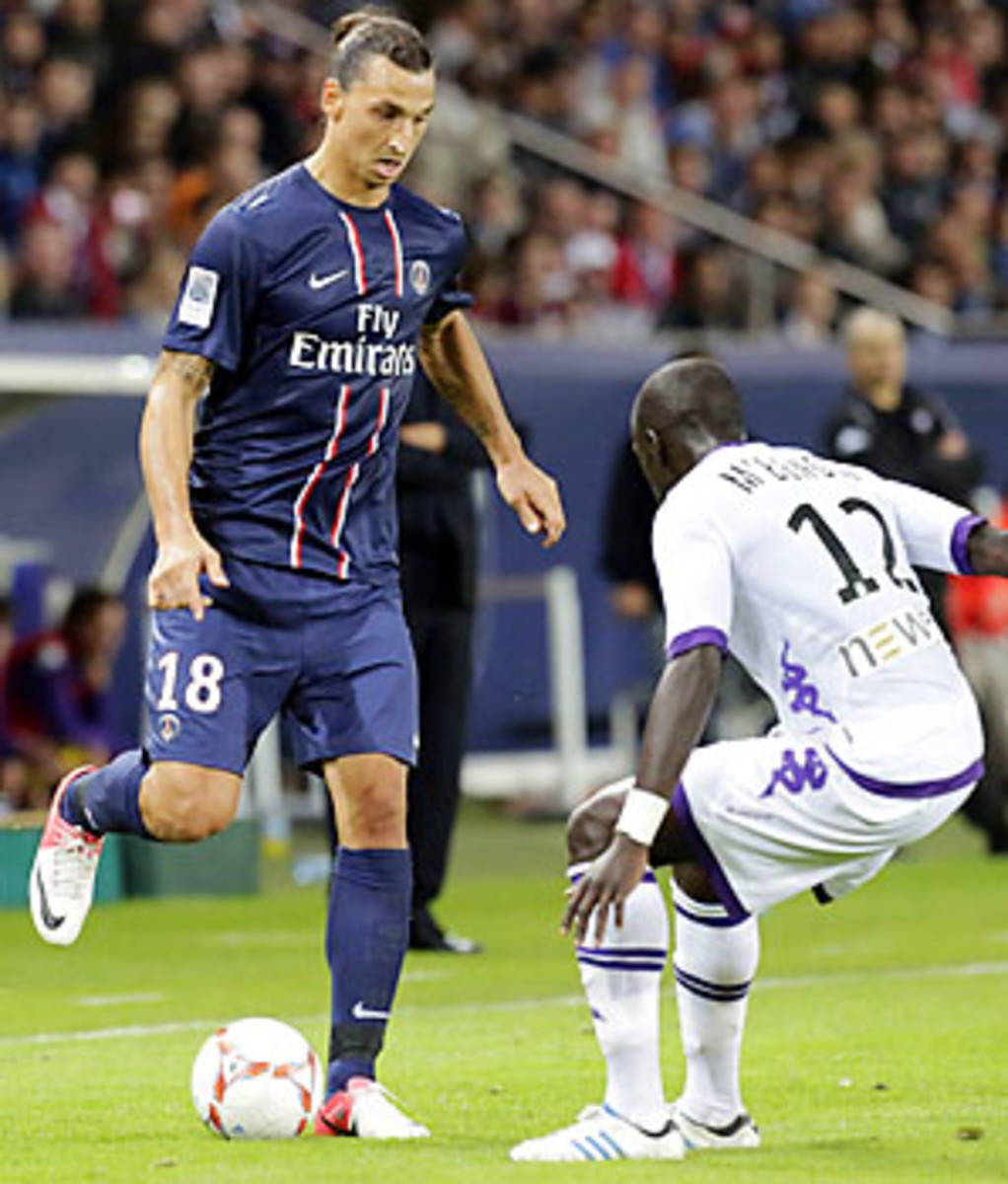Europe's new big spenders hope Champions League formula sticks
Want to win the Champions League? Your club needs a rich owner, a huge outlay on new players and an Italian coach. At least, that's what worked last season, somehow, for Roberto di Matteo's Chelsea. The new kids on the block this season, namely Manchester City, Zenit St. Petersburg and Paris Saint-Germain, are hoping that the same formula works again.
Of those three, City has actually spent the least in the summer transfer window, but the English champion has a similar problem to last season, in being drawn in the so-called Group of Death, alongside three other national champions: Real Madrid (Spain), Borussia Dortmund (Germany) and Ajax (Holland).
City's failure to qualify from its group last year should act as a warning to Zenit and PSG, both of which underperformed last season. The Russian champion, coached by Luciano Spalletti, deservedly lost in the Round of 16 to Benfica but caused shockwaves just before transfer deadline day by signing Porto forward Hulk (€58 million) and Benfica midfielder Axel Witsel (€40 million). In taking the best two players from the Portuguese league, Zenit has also hugely weakened the Portuguese clubs' chances this time around (Benfica also sold Javi Garcia to City). Porto's ability to renew itself is well-known, but it is too soon to expect the likes of Christian Atsu, a 20-year-old Ghanaian wing prospect, to replace Hulk.
PSG was Europe's biggest summer spender, with €88 million of its €105 million total outlay lavished on Thiago Silva (€42 million), Ezequiel Lavezzi (€26 million) and Zlatan Ibrahimovic (€20 million). Coach Carlo Ancelotti ended the domestic campaign on a low point last season, as Montpellier pipped PSG to the title, and this season, three draws in its first three matches put some pressure on the Italian. Ibrahimovic has scored five of its six goals so far this campaign: the question is whether "Ibra-dependence" can qualify it from a group containing Porto, Dynamo Kiev and Dinamo Zagreb.
Barcelona and Real Madrid are, once again, the favorites, and though the Catalans have an easier group than its rivals -- Group H has Benfica, Spartak Moscow and Celtic -- Barcelona's trip to Benfica comes a few days before the first La Liga "clasico" of the season (Madrid warms up with a game against Ajax, which it beat 3-0 home and away last season).
There are other storylines to look out for, not least in a compelling Group E, where title holders Chelsea are up against Juventus, back in the competition after a three-year absence, and against an opponent that won 3-2 on aggregate in its last Champions League knockout tie in March 2009. But this is a different Juventus now: Antonio Conte's side went through last season unbeaten, wining the Coppa Italia, too. Perhaps Juventus is a top striker short of being a contender this season (it tried to buy Fernando Llorente and Didier Drogba but ended up with Nicklas Bendtner on loan) but new faces Kwadwo Asamoah and Mauricio Isla, not to mention last year's stars Arturo Vidal and right back Stephan Lichsteiner, are likely to impress.
Both sides face a threat from Shakhtar Donetsk, whose wily coach Mircea Lucescu has insisted his team is the most exciting in the group. "We play better football than Chelsea and Juventus; our game is more spectacular," he boasted. How well Willian does as playmaker will be worth watching: Shakhtar rejected summer offers from both Chelsea and Juventus (and Spurs) for him.
In the same group, keep an eye on competition debutants Nordsjaelland, from Denmark: 10 years after its formation, it overturned a six-point gap to pip FC Copenhagen to the league title and plays an attacking style inspired by Dutch teams of old. "When I look back at the teams I played for, or the national side, we never played this type of football," said former Denmark star Brian Laudrup. "It's incredibly exciting to watch."
There are other exciting sides to watch, and interesting questions we will see answered: how will Robin van Persie adapt to the competition with new club Manchester United? Can Manuel Pellegrini, coach of another debutant, Malaga, improve on his Round of 16 finish with Real Madrid in 2010, and can its winger Isco, the latest Spanish sensation, shine on this stage? How will Lille cope without Eden Hazard and can Sporting Braga continue its challenge to Portugal's duopoly? And will there be a team to emulate Cyprus's APOEL Nicosia, last season's surprise quarter-finalist?
We may not get the answers after the first round of matches, but if last season's drama is anything to go by, the Champions League will continue to be the most unpredictable competition in world football.






